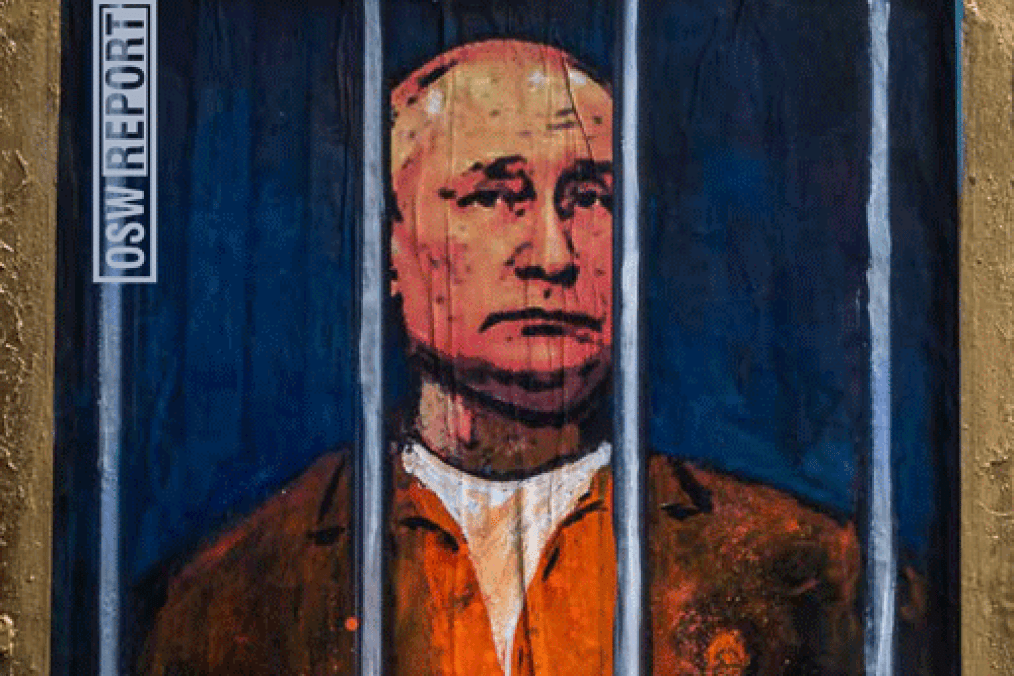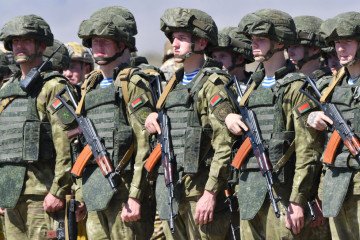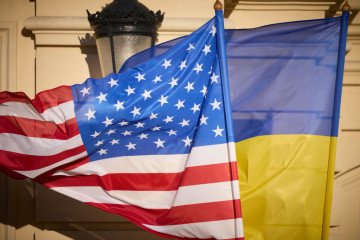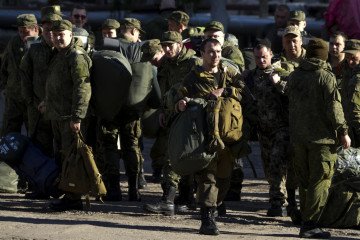- Category
- Latest news
“Winning the War with Russia Is Still Possible”—OSW Reports Strategy for Ukraine

The Center for Eastern Studies (OSW), a leading authority on political, economic, and social developments in Central and Eastern Europe, the Balkans, the Caucasus, and Central Asia, has released a new report titled "Winning the War with Russia (Is Still Possible)."
This analysis highlights a strategy for the West to address the ongoing war in Ukraine and ensure the strategic defeat of the Putin regime.
It’s a systemic war, not a localized conflict
The report underscores that Russia’s full-scale invasion of Ukraine in February 2022 is far more than a regional conflict. It is a systemic war aimed at subjugating Ukraine and challenging the Western-led global order. The stakes include the stability of Europe’s political and security framework and the broader principles of democratic governance.
To counter this aggression, the report stresses the need for a coordinated, multi-faceted Western strategy to support Ukraine’s survival, weaken Russia’s capacity for war, and pave the way for regime change in Moscow.
Key chapters: understanding the war and strategic countermeasures
The report is structured around four main chapters, each addressing a critical dimension of Russia’s war against Ukraine and the global response required.
1. Strategic objectives and tactics
This chapter delves into Russia's dual objectives: subjugating Ukraine and undermining the West. It examines the evolution of Russian tactics in Russia's war against Ukraine and provides an assessment of the current state of aggression. Despite some tactical gains, Russia continues to fail in achieving its strategic goals.
2. Factors influencing Russia’s war effort
Russia’s ability to sustain the war is influenced by its military, economic, political, and social dynamics. This chapter analyzes these factors, highlighting vulnerabilities such as economic strain and societal unrest, which could weaken Russia’s long-term war capabilities.
3. The west’s strategic response
The report outlines a phased strategy for the West:
Short-term: stop Russia.
According to OSW, The immediate goal is to stabilize the front line and halt Russian advances. This involves ramping up military support for Ukraine, including providing advanced weaponry, air defense systems, and artillery. Preparing Ukraine for winter resilience (2024/2025) is crucial, as is equipping its forces for offensives planned between 2025 and 2026. A successful stabilization of the front could pave the way for diplomatic talks aimed at a temporary ceasefire.
Medium-term: weaken Russia.
Over the next several years (up to 2030), the focus shifts to diminishing Russia’s capacity to wage war. Key strategies include intensifying economic sanctions, disrupting military production capabilities, and exacerbating Russia’s socio-economic and political problems. Weakening the regime's ability to maintain domestic support and its military potential is essential. At the same time, Ukraine must strengthen its economy, rebuild infrastructure, and integrate further into NATO and the EU.
Long-term: defeat Russia.
The ultimate objective is to ensure Russia’s strategic defeat by creating conditions for regime change. This phase extends beyond 2030 and focuses on maintaining sustained international pressure, enhancing Western defense capabilities, and fostering global unity against authoritarian regimes. Success requires systematically eroding Russia’s geopolitical influence and preventing its resurgence as a military threat.
4. Western policy tools: the five "D's"
The final chapter introduces the "Five D’s," a comprehensive framework for Western policy:
Deny Victory: Ensure Ukraine succeeds on the battlefield and prevent Russia from achieving its objectives.
Deny Legitimacy: Undermine the political legitimacy of the Putin regime globally.
Decouple Economically: Sever Russia's economic ties with the West and intensify financial pressure.
Deter Moscow: Strengthen NATO’s defense capabilities to deter further aggression.
Defend NATO and Partners: Ensure the security of NATO members and partner states through robust military measures.
A call for unified western action
The report concludes that to secure victory, the West must commit to a comprehensive strategy involving immediate military support for Ukraine, intensified economic sanctions to weaken Russia, and sustained efforts to enhance global defense capabilities. Unity among Western allies and a shared resolve to counter authoritarian threats are essential to achieving long-term stability and upholding the democratic global order.
"Victory over the Putin regime is still possible in the medium- and long-term perspective. Achieving this requires, above all, recognizing the necessity of a long-term, multi-faceted strategy—one calculated to span years or even decades of systemic conflict, potentially more brutal than the Cold War era. This also means accepting the costs of such a confrontation, which are certainly preferable to the alternative: enduring the consequences of Moscow’s strategic success and that of its allies," OSW states.
Previously, Keith Kellogg, the newly appointed US Special Envoy for Ukraine and Russia, along with Fred Fleitz, proposed a comprehensive framework aimed at resolving Russia’s war in Ukraine.


-72b63a4e0c8c475ad81fe3eed3f63729.jpeg)


